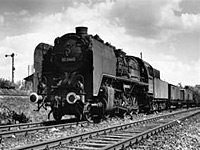
In the 1980’s, I lived for several years in a country which no longer exists, West Germany. I also traveled several times to visit her estranged sister, East Germany. I still remember standing on the border between these two countries with minefields stretching from either side of the highway to the trees. I still remember what it felt like to have my passport taken from me and then watch the ill-humored officer who had taken it disappear into a guard house for what felt like hours. I still remember reflecting uneasily upon the fact that there was a Schiessbefehl (Order to Shoot) and if I ran … but of course I wasn’t going to run. The border crossing had a numbing effect upon the individual, as it was meant to. You couldn’t move. You thought with great difficulty.
That strip of no-mans-land, that landscape of hopelessness, has since disappeared from the border between the Eastern and Western parts of Germany. The world has turned over and East and West Germany are now one again. The East-West highways run without hindrance, the trains don’t stop for hours in the middle of nowhere, families are no longer sundered by a political line.
In the days of the Division, however, this was obviously not the case. Many a German family was split down the middle, half on one side of the border, half on the other. Individuals were divided within themselves. West Germans originally from the East lived physically in one country while their hearts and minds remained behind in a beloved village or city then part of East Germany or even Poland. Other West Germans originally from the East left their memories behind them so they could survive on the western side.
But it’s hard to forget entirely about things you once loved. It’s hard to completely push them from your mind.
Excerpt
Anabela’s train arrived, many hours late, at sunset. Now sitting together with her on a bench, Adolphe, more tired than he could remember feeling in a long time, watched dully as the dilapidated wagons of the East German railroad creaked slowly past him into Neuss station. Upon their sides, he read with equal parts shock and nostalgia the names of the cities of his youth stenciled in ghostly white letters on the wooden boards hung next to each door. Long, undulating flames of rust ran from the wagon roofs down over their sadly-neglected sides. Adolphe heard the arrival whistle shriek, swallowed a cloud of choking smoke, and watched the entire ungainly assemblage, like a tattered caravan which had been too many years in the desert, come to a final and disorganized halt.
He turned to Anabela to beg her not to get on, to tell her he would not allow her to, but he was cut off in this announcement by the whistle of another train announcing its departure.
Around them, the people with whom they had been waiting all the long hot afternoon were coming reluctantly to life, stretching their aching limbs, stooping down to dust off their luggage, or nervously re-checking their papers. While the rest of the people at the station, the locals, just stood and stared at this train out of time, this hideous apparition rolled backwards off a forty-year-old siding.
One West German pensioner in particular, holding a Bratwurst in his upturned right hand, was looking in steady dismay at the lettering on the side of the car Anabela was preparing to get into. The man was wondering, Adolphe well knew, if he had gone quite mad, for the East German trains still ran under the old name, the name the German State Railroad had had during the war and before. Adolphe wondered which train the man was remembering, the train which had carried him away to the war, or the one which had brought him back to the ruins after it, or perhaps another, darker one, unmarked, that he had seen, smelled, heard or perhaps even guarded, but later pushed resolutely from his mind.

